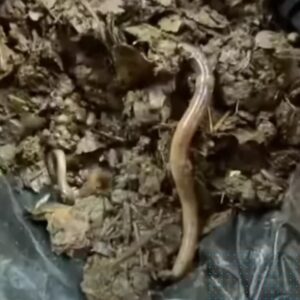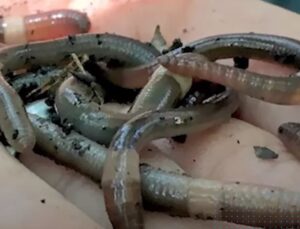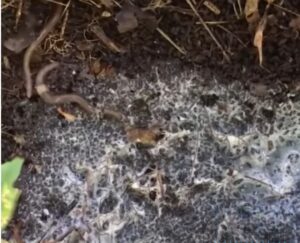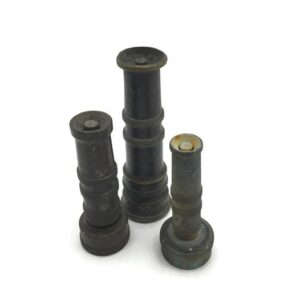An invasive worm species from Asia is currently terrorizing gardens and yards across the American Midwest. The invasive jumping worm can thrive in all types of soil and are making a home for themselves in the fertile land between the two coasts. These worms do not have any natural predators in the United States, so they are free to breed and increase their population, again and again, all while leaving nothing but destruction everywhere they go.

Besides causing harm to the ground across the Midwest, the Asian jumping worm is also just a creepy critter. While some people are terrified of all worms, this one can be particularly alarming. Although the name of the creature implies that it can “jump,” its movement is more of a twisting snap that looks about as creepy as it sounds.
According to a report on the Animal Channel website, the Asian jumping worm has made its way across numerous states in the heartland of America as of 2021. The states that have been invaded by this harmful worm include Wisconsin, Missouri, Illinois, Iowa, Minnesota, Nebraska, Ohio, Texas, Louisiana, Indiana, Kansas, Indiana, Kentucky, Tennessee, and Oklahoma.

It is recommended that you kill these worms if you see them in your garden or yard. They can steal all the nutrients from the soil so that local plants and animals no longer have food to survive. With no place to live, the local plants and animals start to die off, and their population gets depleted in proportion to how many of these worms continue to thrive.
If you live in one of the affected states, you can expose these worms in your land to get rid of them. Brad Herrick, an ecologist at the University of Wisconsin-Madison Arboretum, suggests sprinkling a mixture onto the soil to get these worms to leave it and come out for air.

Herrick suggests getting mustard powder and mixing it with some water. Then pour the mixture on top of your soil and wait for the worms to come squiggling out of the ground. They can emerge as quickly as in thirty seconds.
The formula works because mustard powder irritates the worms’ skin, so they leave the ground and come out to get away from it.

You can identify the Asian jumping worm by a marker on its body. It has a white ring around its body that is close to its head.
Smithsonian reports, “Researchers suggest individuals remove any adult worms they find, place them in a plastic bag, leave them in the sun for at least ten minutes and then throw them away. Experts also suggest that individuals shouldn’t purchase the worms for bait, gardening, or composting—and should only buy compost or mulch that has been adequately heated to reduce the spread of egg casings, which do not survive temperatures over 104 degrees Fahrenheit.”

